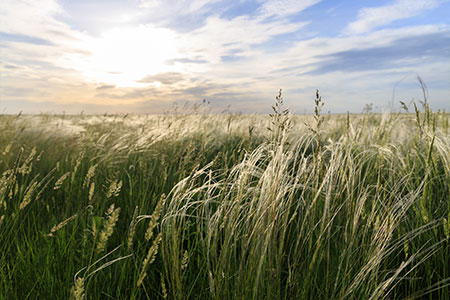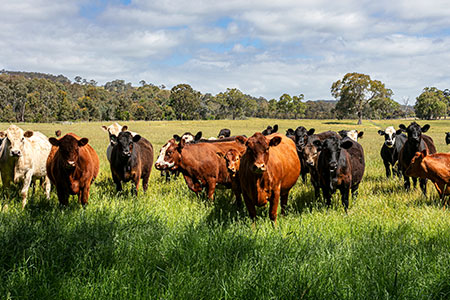$15 million initiative supports ranchers across five states and 1 million acres of grassland to scale sustainable grazing practices and carbon sequestration.
Cargill is collaborating with Sysco and the National Fish and Wildlife Foundation (NFWF) to support ranching communities in scaling up sustainable grazing practices through rotational grazing, improvements to infrastructure and natural control of invasive vegetation.
Thirty percent of beef in the U.S. is produced in the Southern Great Plains area, making this initiative one of the largest sustainable beef cattle grazing efforts in the nation.
The Southern Plains Grassland Program’s target is to sequester up to 360,000 metric tons of carbon each year by 2030 across Texas, Oklahoma, New Mexico, Kansas and Colorado – equivalent to removing 78,000 passenger vehicles from the road over the same period. This will result in positive impacts from the ranch to the customer.
Impact
Using the USDA’s Natural Resources Conservation Service “Working Lands for Wildlife” framework, the NFWF initiative aims to help ranchers plan and implement voluntary grassland management practices with consideration for the unique needs of their land.
The sustainable grazing practices implemented by ranchers with support from this program will have far-reaching impact by:
- Improving soil health. Healthy grasslands and rotational grazing protect soil from erosion and compaction.
- Reducing flooding and increasing resilience to drought. Deep-rooted grasses help keep water in the ground and maintain the natural water cycle.
- Promoting biodiversity. The Southern Great Plains provide critical habitat and migration corridors for native wildlife.
- Increasing carbon storage. Healthy grasslands sequester and store a large amount of carbon in the soil.
- Safeguarding the livelihoods of ranchers and rural communities. By providing resiliency against decreased yields, the initiative will help support the long-term viability of their businesses. More than 95% of cattle ranches in the U.S. are family-owned, and they represent a major economic driver in large areas of the country.


Collaboration
“Public-private partnerships are the key to helping agricultural producers voluntarily improve their operations while also enhancing natural resources,” says Jeff Trandahl, executive director and CEO of NFWF. “Both Sysco and Cargill recognize the responsibility that comes with their scale, and the importance of leveraging their experience and resources to further drive sustainability in the industry.”
As a major global purchaser and distributor of a wide variety of beef products, Sysco is committed to ensuring positive environmental and social impacts in its procurement of beef. Sysco and Cargill’s investment extends NFWF’s vital work on the ground, including facilitating nonprofit conservation groups, ranching collaboratives and agencies at the state and local levels to engage with ranchers.
